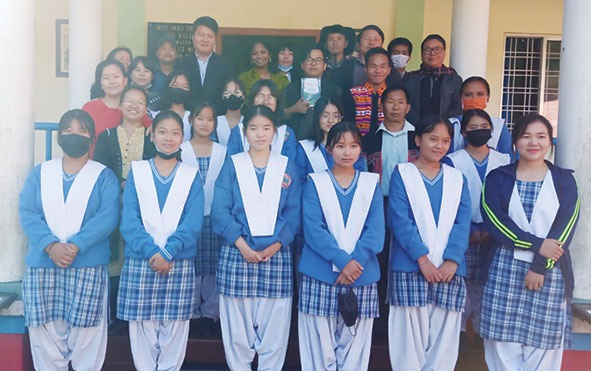[ Karyir Riba ]
ROING, 19 Dec: The Lower Dibang Valley (LDV) district unit of the Arunachal Pradesh Literary Society (APLS) on Sunday conducted a session at the Mipi Pene Centre here to review the book Tigers are Our Brothers: Anthropology of Wildlife Conservation in Northeast India, authored by IITGN Humanities & Social Sciences Assistant Professor Dr Ambika Aiyadurai and published by Oxford University Press.
The book is based on Dr Aiyadurai’s long-term ethnographic fieldwork along the Sino-India borderlands of Arunachal Pradesh, and critically engages in debates of wildlife conservation and its impact on the lives of the Idu-Mishmi community.
Dr Aiyadurai highlighted the key arguments of the book by dwelling on “the conflict between natural sciences and social science in relation to wildlife conservation.” She highlighted the importance of
examining the concept of nature and conservation from the perspective of the indigenous communities. She emphasized the need for an inclusive, culturally relevant and people-centric approach to wildlife conservation.
She said that “the catchy title is the contribution of the Idu Mishmis of Arunachal Pradesh, who believe that tigers are their elder brothers.”
APLS LDV unit convener Dr Razzeko Dele provided insights from the book, and expressed appreciation for the book “for touching ethnographic aspects and being written in a style which can be read by both academic and non-academic readers.”
He said that, “while the book has a few shortfalls in terms of fact-findings, it can be read by the younger generation of the community to learn about the culture and ecology of their landscape and the current issues of conservation and development.”
Some of the participants also provided scholarly comments.
Pointing out some “gaps and shortcomings of the book,” Dr Abba Pulu said that “the local Idu terms and facts need to be checked,” and that the author should work on them in the next edition.
Similarly, Dr Rasto Mena and advocate Tilu Linggi said that some of the themes that are not relevant to the book could have been avoided.
Overall, the author’s involvement, her interest in the topic, and her work with different sections of the community to understand what conservation and nature means to them in their daily lives, were appreciated.
Local MLA Mutchu Mithi also attended the discussion, along with scholars and students.





